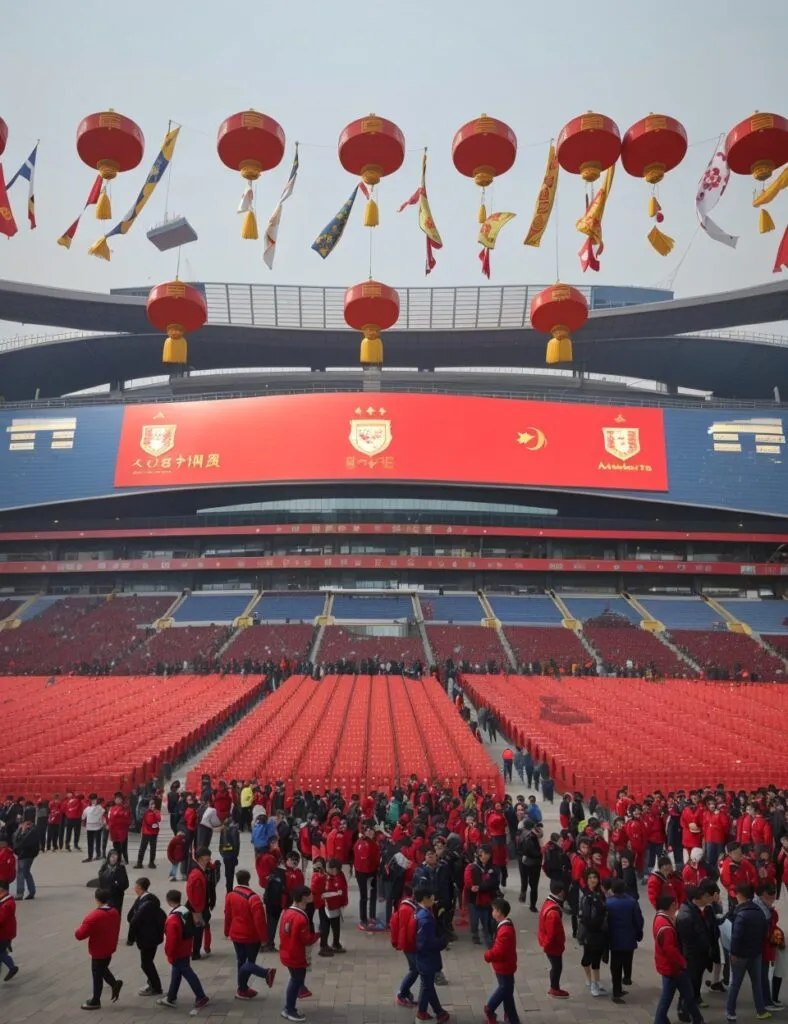The financial difficulties at West Bromwich Albion have recently surprised football fans all over the world. The club, which has been under the control of a Chinese consortium since 2016, has been unable to pay its debts and has seen a few alterations in ownership and management.
With its future uncertain, many are asking how a club with such a long history in English football ended up in such a difficult situation. This article will look into the causes of West Brom’s financial crisis and its effects on the future of football.
It is important to understand that West Brom’s financial struggles are the result of a combination of factors. These include mismanagement of funds, poor decision-making, and a lack of investment in the team.
Additionally, the coronavirus pandemic has had a significant negative impact on the club’s attendance and revenue. As a result, the club has been unable to meet its financial obligations, leading to a cash flow crisis.

The club’s inability to attract new investors has made the situation worse. Despite numerous attempts, the club’s precarious financial situation and lack of stability have turned away potential investors.
This has left the club in a vulnerable position, with no clear path out of its financial woes.
The implications of West Brom’s financial troubles are far-reaching. Not only does it put the club’s future in jeopardy, but it also serves as a warning to other clubs.
It is a reminder of the importance of sound financial management and the need to invest in the team in order to ensure long-term success. It also highlights the fragility of the football world and the need for clubs to be aware of their financial situation at all times.
It is clear that West Brom’s financial crisis has shaken the football world and raised questions about the club’s future. However, it is also important to note that the club has a strong history and a loyal fan base.
With the right approach and the support of its fans, the club can hopefully emerge from this crisis and return to the top of English football.
Key Takeaways
West Bromwich Albion’s financial issues have highlighted the need for increased transparency and oversight when it comes to ownership structures in English football.
The effects of the club’s mismanagement, bad decision-making, and lack of communication with its fans have been felt worldwide.
In order to avoid such situations in the future, clubs must ensure that their financial activities are conducted in an open and ethical manner and that their supporters are kept informed of all updates.
Furthermore, owners must be held accountable for their decisions and actions. Equally important is the right of supporters to express their views and have them heard by club representatives.
Taking these steps is necessary to guarantee the security of football in the future.
West Bromwich Albion’s Troubled Ownership History
For over two decades, West Bromwich Albion has been under a series of troubled ownerships, beginning with Jeremy Peace’s sale of his stake in 2016. This sale, which marked the start of the club’s financial worries, was to an opaque Chinese consortium for an undisclosed sum.
Despite parachute payments from Premier League revenue, the club has fought to pay off their debts, resulting in the loan of £4.95 million from Wisdom Smart Corporation Limited being written off.
What’s more, West Brom has taken out a £20 million loan from MSD Holdings with an effective interest rate of 13.93%. The Chinese ownership controversy has had a significant effect on West Brom’s reputation, with the club’s future operating expenses and loan repayment uncertain.
Chinese Investment in Football
During the mid-2010s, China invested heavily in football, both domestically and internationally. They acquired clubs such as West Bromwich Albion, Inter Milan, and Liverpool.
The Chinese Super League rivaled the Premier League in transfer expenditure. In actuality, Chinese businesses or people took control of West Brom, Wolves, and Aston Villa, all of which are in the West Midlands.
However, the decline of the Chinese Super League has had noticeable effects. Investment in football has rapidly decreased, and salary caps have been introduced to discourage overseas club ownership.
Currently, West Brom and Wolves are among the last European clubs with Chinese owners. The sale of West Brom was only £72 million, a significant difference compared to the £200 million that Saudi Arabia paid for Newcastle United. Manchester City and Everton were also taken over for similar amounts.
The lack of investment, opaque ownership structure, and poor recruitment decisions have left fans desperate for new ownership and better regulation.
West Brom’s Performance in the Premier League
West Bromwich Albion’s Premier League performance was tumultuous, with two relegations in three seasons. The chaotic summer transfer window saw poor investments, with the team lacking in midfield reinforcements and older players signing.
Manager Tony Pulis was dismissed in November after the club was 17th in the league, and Alan Pardew failed to win any of his first eight games in charge. Both the chairman and CEO were also removed in February.
The lack of investment in the squad was obvious, as Daniel Sturridge’s loan signing failed to contribute any goals. West Brom finished bottom of the league and were relegated. They received money for Mateus Pereira but didn’t spend any transfer fees, and their recruitment team made mistakes with signings.
This lack of investment and poor recruitment resulted in their immediate relegation.
Financial Struggles of West Bromwich Albion
The financial struggles of West Bromwich Albion have rocked the football world, and yet the club’s ownership structure remains unclear. Mismanagement has been a problem for the club, and loans have been used to cover operating expenses.
West Brom had been relying on parachute payments, but this support will no longer be available next season. This could prove to be a potential disaster for the club, as player sales may be the only way to generate funds.
Auditors have raised significant concerns about the club’s future due to the nebulous ownership structure, which may not be fully identified by the owners and directors test.
Fans are desperate for some form of action to address the financial situation, as a lack of coverage and communication from the club only worsens the issue.
Uncertainty Surrounding West Brom’s Future
With the complex ownership structure and uncertain future of West Bromwich Albion, questions have arisen about the sustainability of the club. Since the takeover by a Chinese consortium in 2016 and the club’s relegation from the Premier League in 2021, West Brom have been struggling financially.
The absence of clarity with respect to the ownership structure and future of the club has caused great anxiety amongst fans as the club continues to expend its parachute payments and loans.
The potential effects of the club’s uncertain future could be severe, with the possibility of further financial difficulties and a lack of investment.
The impact of the financial turmoil on the players has also been felt, with morale and performance taking a hit. With no clear plan for the future, West Brom’s future remains uncertain. It’s evident that better oversight and regulation are needed to avert similar crises in the future.

Fans Desperate for Intervention
Desperately, fans of West Bromwich Albion are calling for an intervention to address the financial turmoil at the club. The opaque ownership structure and uncertain future raise questions about the club’s stability, and the owners and directors test may need to be reviewed to prevent such ownership structures.
Potential solutions include:
- Finding New Owners: Fans are desperate for new ownership to stabilize the club and address their financial troubles.
- Making Smart Investments: Fans want to see the club make wise investments in order to improve the team’s performance.
- Regulating the Owners and Directors Test: Fans are seeking a review of the owners and directors test to prevent such ownership structures.
The impact of the financial turmoil on fans is immense, as they’re unable to attend matches due to the pandemic and are concerned about the club’s future. The lack of communication from the owners and the ambiguity surrounding the club’s future have only increased their fears.
It’s evident that some form of intervention is urgently needed to address the financial situation at West Bromwich Albion.
Problematic Ownership Structures in English Football
Though the opaque ownership structure of West Bromwich Albion has raised concerns, it isn’t the only problematic ownership structure in English football.
Recent Chinese investments in English football have highlighted the need for greater transparency and better regulation.
This is especially evident in the case of West Bromwich Albion, where the identity of the owners is unclear and there’s been minimal communication between the owners and the fans.
The club’s future operating expenses and loan repayments are uncertain, and the lack of coverage and communication surrounding the situation exacerbates the issue.

It’s essential that regulatory reforms are implemented to ensure ownership transparency and prevent similar crises in the future. Supporters of all teams have been desperate for intervention and better ownership models.
The situation at West Bromwich Albion serves as a reminder of the need for improved regulation and oversight of ownership structures in English football.
Lack of Communication and Coverage of West Brom’s Financial Troubles
West Bromwich Albion’s lack of communication and coverage regarding their financial troubles has caused considerable distress among football fans across the globe. The complex ownership structure and unclear future of the club have raised questions about its stability.
West Brom’s lack of transparency and accountability leaves the wider football community in the dark about the implications of their financial turmoil. This lack of communication has made it hard for fans to comprehend the situation and take the necessary action.
The complex ownership structure of the club makes it complicated to identify problematic ownership structures.
Auditors have expressed material uncertainty about the future of West Brom, and fans are urgently seeking some form of intervention to address the financial situation. What’s more, the club’s recruitment history raises doubts about finding suitable replacements.
The lack of coverage and communication pertaining to West Brom’s financial troubles aggravates the uncertainty. This has left fans feeling powerless and frustrated with the lack of updates about the situation.
The situation at West Bromwich Albion underscores the need for better regulation and new ownership structures in English football. Without these measures, similar crises may arise in the future.
Conclusion
West Bromwich Albion’s financial woes have shed light on the need for increased transparency and oversight when it comes to ownership structures in English football.
The implications of the club’s mismanagement, poor judgment, and lack of communication with its fans have been felt across the football world.
To prevent further issues in the future, clubs must guarantee that their financial activities are conducted openly and ethically and that their supporters are kept informed of all developments.
Additionally, it’s of paramount importance that owners are held accountable for their decisions and actions.
The ability of supporters to express their opinions and have those voices heard by club representatives is equally crucial.
All these steps are necessary to ensure the security of football in the future.
